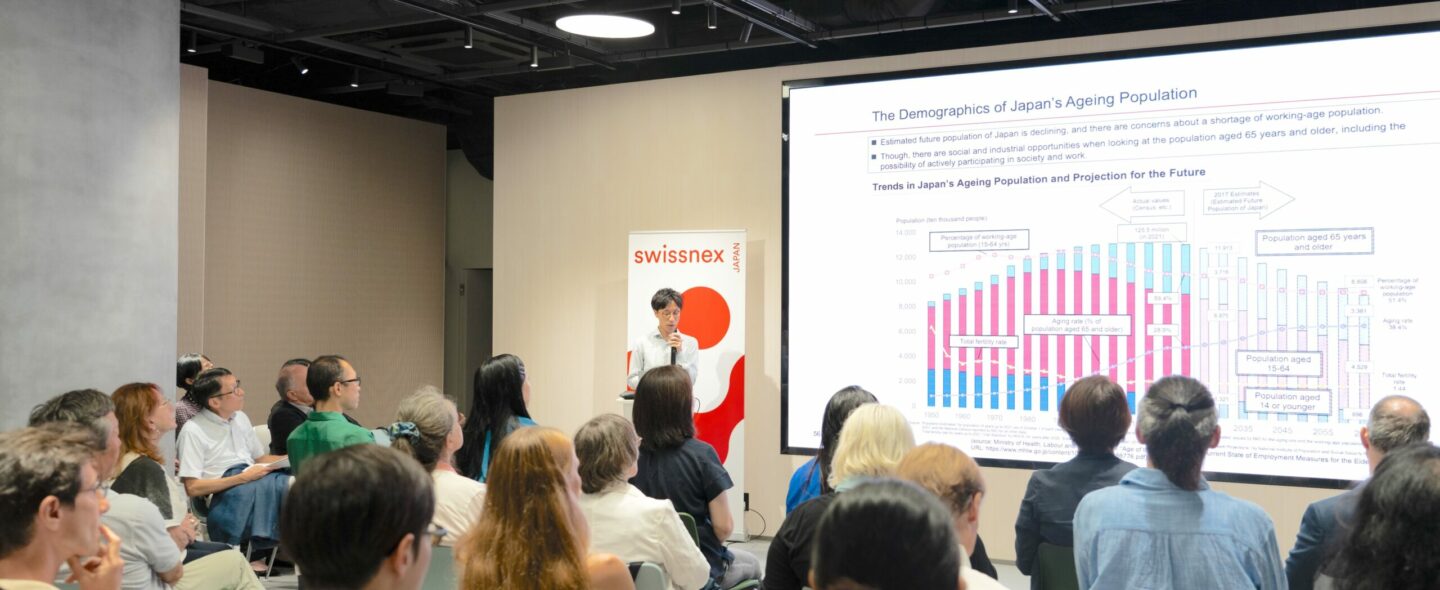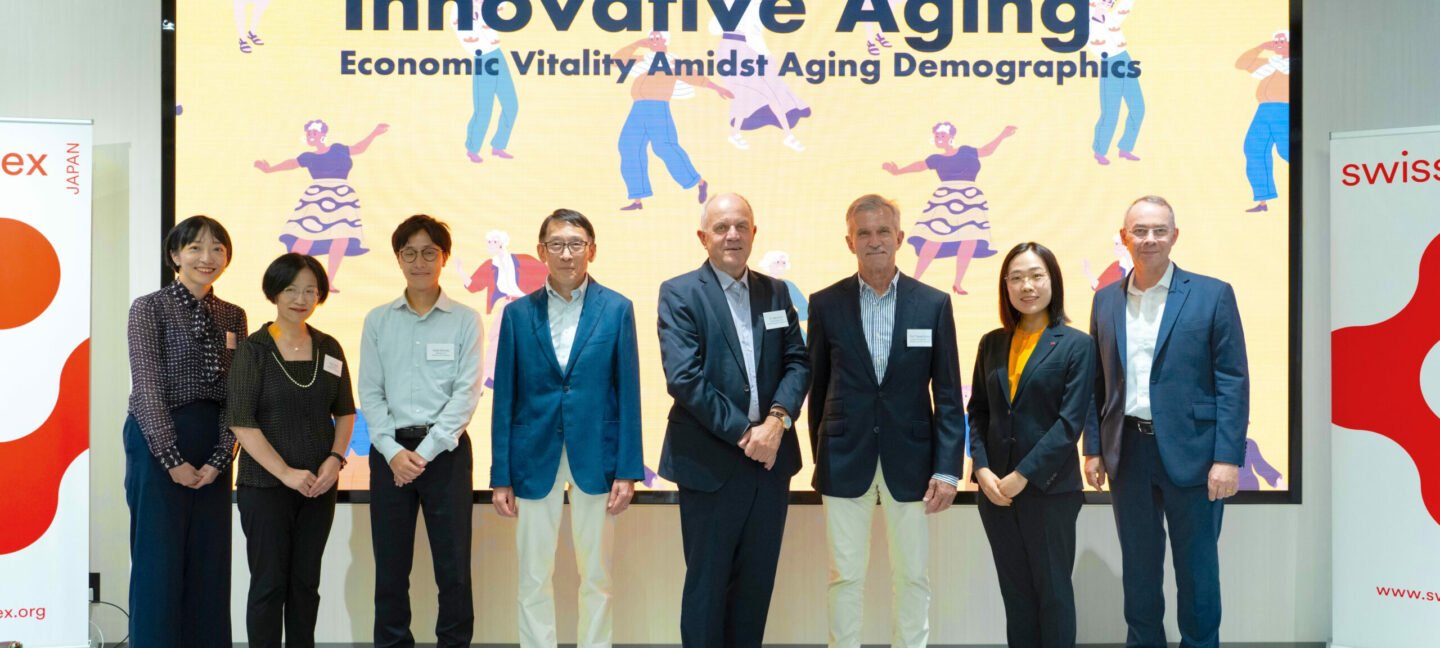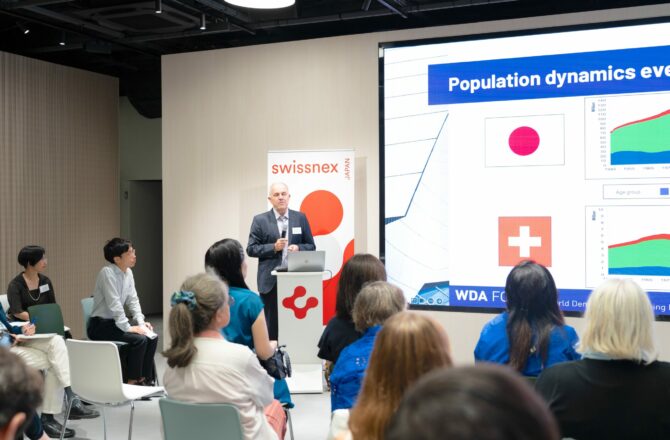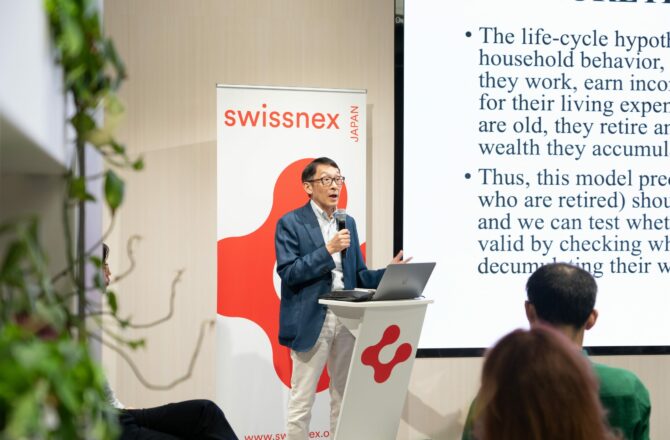

From left to right: Ms. Kaoru Homma, Ms. Kaoru Hirata, Mr. Kanta Mochida, Prof. Charles Yuji Horioka, Dr. Hans Groth, Dr. Thomas Zeltner, Ms. Minami Kotani, Dr. Felix Moesner
Demographic Challenges in Aging Societies
Both Switzerland and Japan face similar demographic pressures: low birth rates, shrinking workforces, and an aging population. The panel addressed these shared concerns, particularly how these shifts strain healthcare systems and economic productivity. As noted by Dr. Groth, “Both Switzerland and Japan are in the process of aging, shrinking, and dealing with territories growing smaller,” highlighting the urgency of rethinking current social and economic models.

Both countries, Switzerland and Japan, are in the process of aging, shrinking, and dealing with territories growing smaller.
Innovative Aging Strategies
One of the central topics of discussion was innovative aging strategies. Dr. Zeltner emphasized the importance of promoting healthy life expectancy to reduce the burden of disability in old age. Technological innovations, such as power assist suits, can enable older adults to remain active in the workforce, while policy reforms are necessary to create more inclusive employment opportunities for seniors.
Prof. Horioka shared data insights into the saving behaviors of the elderly, noting that many older individuals continue saving out of precautionary concerns over healthcare and longevity risks, challenging the traditional life cycle hypothesis.
Economic Impacts and Workforce Adaptation
Mr. Mochida presented on the economic impacts of Japan’s aging society, outlining how labor market dynamics are shifting. The discussion emphasized the need for workforce adaptation through continuous education and training, enabling older adults to contribute effectively. Both Switzerland and Japan were urged to embrace policies that integrate the elderly into society, ensuring they can continue to share their expertise and remain economically active.

The key to managing an aging society is not just about handling the status quo; it’s about pioneering innovative ways to make longer lives a real achievement for all.
Takeaways and Recommendations
- Health and Technology: Promoting health and leveraging technological advancements are crucial for managing aging populations. The speakers called for an increase in regular health check-ups and active aging support technologies like robotic care devices and power assist suits to help older individuals stay in the workforce longer.
- Policy Reform: Legal amendments and adaptable employment policies are necessary to support stable jobs for older workers. Dr. Groth and Ms. Hirata both highlighted the need for social safety nets and the expansion of reverse mortgage markets to help elderly homeowners finance their retirement.
- Continuous Education: Ensuring older adults have access to continuous education and retraining opportunities will be key to enabling their ongoing contributions to the economy. This aligns with the overall theme of adapting to demographic changes, rather than resisting them.
Conclusion
The Innovative Aging event offered a wealth of insights into how Switzerland and Japan can navigate their aging populations. With the combined efforts of policymakers, researchers, and the private sector, both countries have the opportunity to turn the challenges of demographic change into a catalyst for economic innovation and societal progress. The event underscored the importance of embracing these changes through innovative policies, healthcare advancements, and a forward-thinking approach to workforce adaptation. This is not just about managing an aging population—it’s about unlocking the potential of older adults to contribute meaningfully to society.
Partners
Contact

Head of Academic Relations




